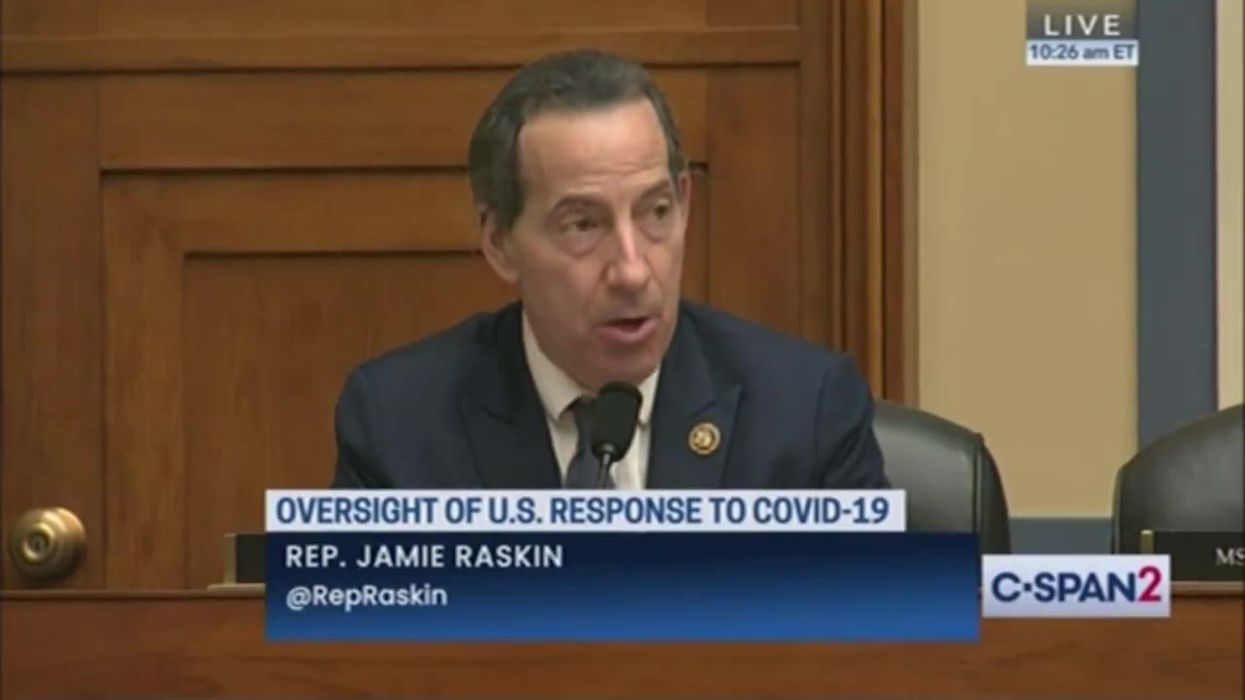Ellie Abraham
Jun 24, 2024
Jamie Raskin defends Anthony Fauci and swipes at Trump during House Covid-19 …
C-SPAN
More than four years ago, the world as we knew it changed forever with the outbreak of the Covid-19 pandemic.
The virus affected all corners of the world and killed millions of people globally. Experts had been left perplexed by why the virus was deadly for some, while others have never caught it. But, a new experiment has now revealed some of the answers.
A group of researchers led by the Wellcome Sanger Institute and University College London conducted a ground-breaking experiment which has revealed a unique immune response that stops some people from ever becoming infected with SARS-CoV-2.
The experts completed a “challenge trial” which involved intentionally infecting 36 healthy volunteers, aged between 18 and 30, with a pre-Alpha strain of SARS-CoV-2.
It was done within strict laboratory conditions and involved 16 individuals who have never been vaccinated, nor had Covid-19 before.
Quantitative systems biologist Rik Lindeboom, explained: “This was an incredibly unique opportunity to see what immune responses look like in adults with no prior history of COVID-19, in a setting where factors such as time of infection and comorbidities could be controlled.”
For up to a year after the initial infection, blood and nasal swabs were taken from the volunteers and were analysed using single-cell RNA sequencing that allows experts to get a highly detailed look at their cell activity.
The data revealed three different categories of infection: transient, sustained, and abortive.
For those who had an abortive infection, experts discovered a unique “weapon” the body had in order to avoid the virus developing before symptoms ever begin.
Most people’s body’s mount an immune response when the virus enters the blood, however, in these participants, experts noticed a subtle but quicker reaction in their nasal tissues that helped to clear the virus before it had a chance to infect them.
The reaction involved a drop in inflammatory white blood cells and the activation of mucosal-associated invariant T (MAIT) cells in the blood.
A common factor among these participants was an elevation in the expression of gene HLA-DQA2 in their nasal cells prior to getting the virus.
The senior author of the study, Marko Nikolić, a respiratory medical scientist at University College London, explained: “These findings shed new light on the crucial early events that either allow the virus to take hold or rapidly clear it before symptoms develop.”
They continued: “We now have a much greater understanding of the full range of immune responses, which could provide a basis for developing potential treatments and vaccines that mimic these natural protective responses.”
Sign up for our free indy100 weekly newsletter
How to join the indy100's free WhatsApp channel
Have your say in our news democracy. Click the upvote icon at the top of the page to help raise this article through the indy100 rankings
Top 100
The Conversation (0)














